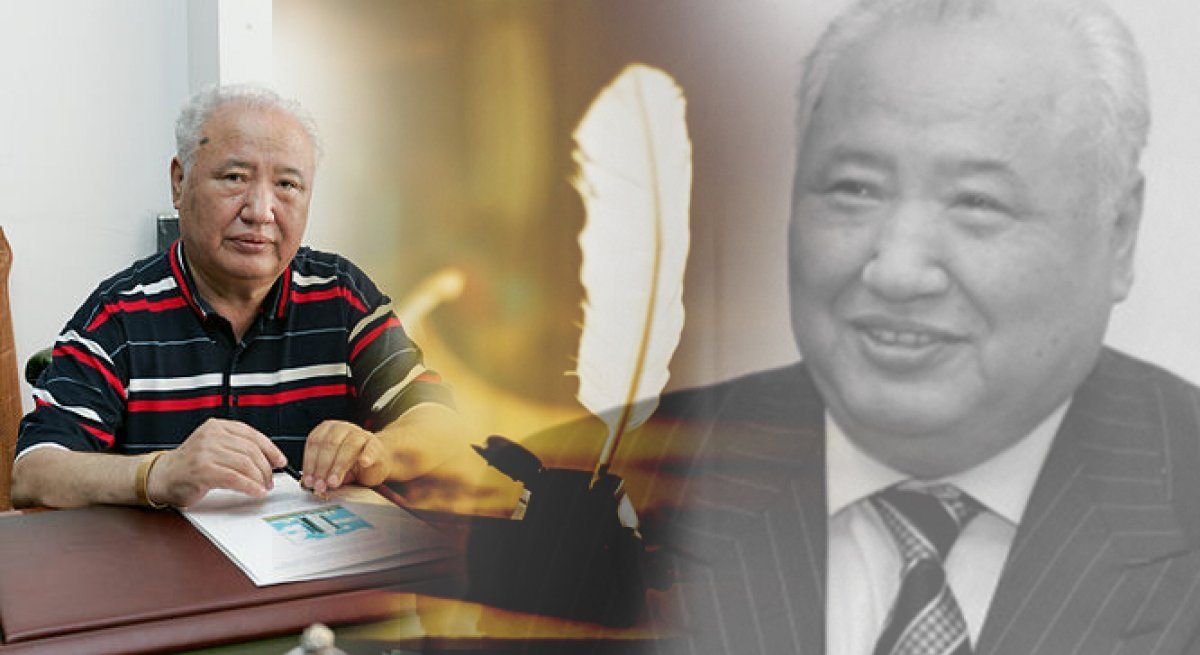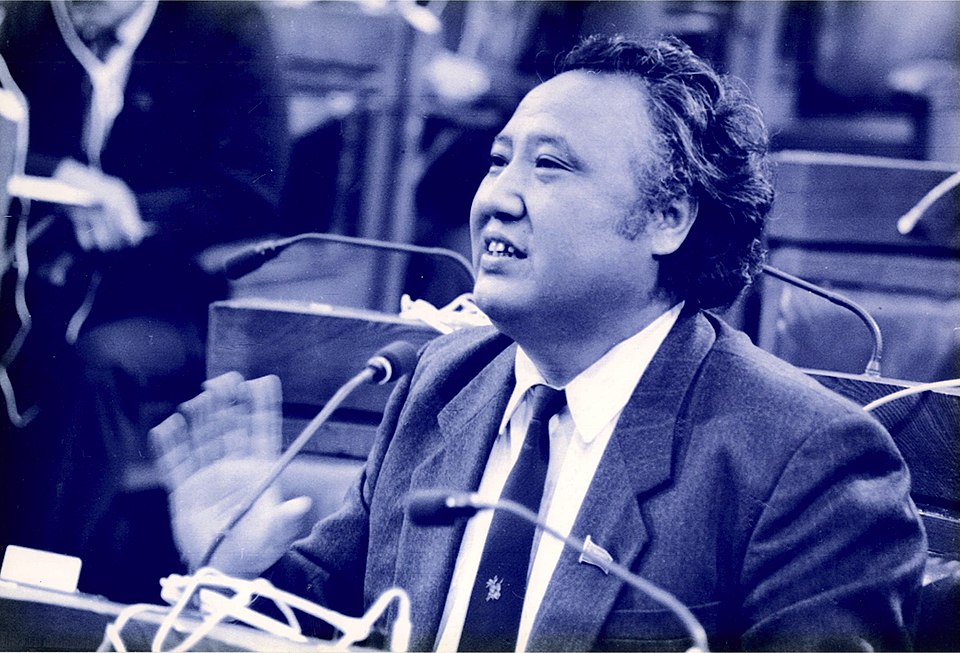ASTANA – Kazakhstan commemorates the 85th anniversary of Abish Kekilbayev, a distinguished writer, philologist, translator, historian, and statesman, on Dec. 6. Known for his encyclopedic knowledge and literary innovation, Kekilbayev remains a towering figure in Kazakh literature and public life.

Abish Kekilbayev, a distinguished writer, philologist, translator, historian, and statesman. Photo credit:visitmangystau.kz
Born in Ondy village in the Mangystau Region, Kekilbayev graduated in 1962 from the philological faculty of the Kazakh State University. He began his career as a literary employee at the “Kazakh Adebieti” newspaper, quickly rising to head the literature and art department at “Leninshil Zhas”. Over the years, he held numerous cultural and editorial roles, including chief editor at the Kazakhfilm studio and Deputy Minister of Culture for the Kazakh SSR.
In 1986 Kekilbayev became a member of the Board of the Union of Writers of Kazakhstan. He chaired the Presidium of the Central Council of the Kazakh Society for the Protection of Historical and Cultural Monuments for the next two years. Under his leadership, significant historical sites such as Turkistan, Sairam, Otyrar, Taraz, Mangystau, Shubartau, and Aiyrtau gained international recognition. These landmarks were incorporated into the UNESCO-supported Silk Road expedition, highlighting their cultural and historical importance on a global stage.
He also held high-ranking government positions, including speaker of the Supreme Council, advisor to First President Nursultan Nazarbayev, Secretary of State, and Senate deputy.
Literary contributions
Kekilbayev is celebrated as a master of literary prose with a repertoire spanning over 50 works. His debut poetry collection, Golden Rays (1963), marked the beginning of a literary journey that produced classics such as “Ballads of the Steppes”, “The Last Snow”, “Ballads of Forgotten Years”, “Urker”, “Abyss”, “Elen-Alan”, “Abylai Khan” and others.

Kekilbayev served as a deputy in the 12th convocation of the Supreme Council. Photo credit: wikiwand.com
His novels “Urker” and “Elen-Alan” made a profound impact on Kazakh literature, capturing pivotal moments in the nation’s history and portraying characters who fought for freedom and independence during Kazakhstan’s annexation to Russia.
His works have been translated into multiple languages, including Bulgarian, Czech, German, Polish, and Russian. Kekilbayev translated classics like Guy de Maupassant’s “Pierre and Jean” and Leo Tolstoy’s “War and Peace” into Kazakh. His contributions to theater included translations of works by Shakespeare, Ibsen, and Gozzi.
For his profound impact on literature and culture, Kekilbayev received numerous accolades, including the Presidential Prize of Peace and Spiritual Harmony and the title of People’s Writer of Kazakhstan. He was also honored with the Order of the First President of Kazakhstan for his contributions to fostering Kazakhstan’s artistic and national identity.
Praising a national figure
During his address at the National Kurultai in Atyrau on March 15, President Kassym-Jomart Tokayev highlighted Kekilbayev’s extraordinary contributions to Kazakhstan’s development.
“People who place national interests above personal ones should serve as examples for us and future generations. This is particularly vital in today’s geopolitical climate. In this context, I want to especially acknowledge our renowned writer and statesman, Abish Kekilbayev,” said Tokayev.

In 2019, a cultural center was inaugurated in Aktau to commemorate Kekilbayev’s 80th anniversary. Photo credit: ortcom.kz
The President praised Kekilbayev as a distinguished literary classic who significantly influenced the spiritual life of the Kazakh people.
“I worked with Kekilbayev and knew him well. He was a figure of great inner culture who never spoke ill of others or sowed discord. He treated everyone with respect and love. Many people came to him from nationwide to pay their respects to him and just talk to him. After meeting him, people left inspired and uplifted. He avoided idle chatter, instead reflecting deeply on matters of humanity’s past, present, and future. In every sense, Kekilbayev was a great intellectual and a wise man,” added Tokayev.
In September, Aktau hosted an international forum marking Kekilbayev’s 85th anniversary. The event brought together his friends, colleagues, family members, poets, writers, scholars, and intellectuals from Kazakhstan, Türkiye, Hungary, Azerbaijan, and the Kyrgyz Republic to celebrate his creative legacy.
During the event, Onaysha Mandoki, a Kazakh from Hungary, shared her admiration for Kekilbayev’s work.
“Among the Kazakh writers whose works have been translated into Hungarian, “Baigetory” by Kekilbayev holds a special place. When Hungarians read this story, they are reminded of their long-forgotten ancient traditions. The kindness Abish-aga extended to Kazakhs in Europe, including Kipchaks and Hungarians, rekindled their connection to the past,” she told Kazinform news agency.
